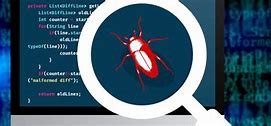How to Become a Software Tester in India
Table of Contents
1. Introduction
How to Become a Software Tester in India: The field of software testing involves assessing software applications to identify and report defects and ensure they meet the required quality standards. In India, the demand for skilled software testers is on the rise, making it an attractive career option for many. To embark on this journey, you need to follow a structured approach.
2. Understanding the Role of a Software Tester
Before diving into the specifics of becoming a software tester, it’s essential to understand the responsibilities of the role. A software tester is responsible for:
- Verifying that the software functions correctly.
- Identifying and documenting defects or bugs.
- Ensuring the software meets user requirements.
- Collaborating with developers to resolve issues.
- Running various test scenarios.
3. Educational Requirements
3.1. Bachelor’s Degree in Computer Science or Related Field
While a specific degree is not always mandatory, having a bachelor’s degree in computer science or a related field can be advantageous. It provides you with a strong foundation in programming and software development concepts.
3.2. Certification in Software Testing
Consider obtaining certifications in software testing from recognized organizations such as the International Software Testing Qualifications Board (ISTQB). Credibility and work prospects can both be improved by certifications.
4. Developing Technical Skills
4.1. Programming Knowledge
To excel as a software tester, you should have a good understanding of programming languages like Java, Python, or C++. This knowledge enables you to create and execute automated test scripts.
4.2. Understanding of Testing Tools
Familiarize yourself with testing tools like Selenium, JIRA, and TestRail. These tools are widely used in the industry for test automation and defect tracking.
5. Soft Skills for Success
5.1. Attention to Detail
Software testers must have a keen eye for detail to spot even the smallest defects in the software.
5.2. Analytical Thinking
Analytical skills are essential for assessing complex software systems and identifying potential issues.
5.3. Communication Skills
Effective communication is crucial for reporting defects and collaborating with development teams.
6. Gaining Practical Experience
6.1. Internships and Training Programs
Consider internships and training programs offered by software companies or testing organizations. These provide hands-on experience and exposure to real-world projects.
6.2. Freelance Testing Projects
Participating in freelance testing projects can help you build a diverse portfolio and gain experience across different domains.
7. Building a Portfolio
Create a portfolio showcasing your testing projects, certifications, and skills. Potential clients and employers can be impressed by an attractive portfolio.
8. Networking in the Industry
Attend software testing conferences, seminars, and meetups to network with professionals in the industry. Networking can lead to new job chances and insightful information.
9. Job Search and Application
Apply for software testing positions on job portals, company websites, and through networking contacts. Make sure to showcase your relevant experience and talents in both your resume and cover letter.
10. Interview Preparation
Prepare for interviews by studying common software testing interview questions and practicing your responses. Showcase your problem-solving abilities and testing knowledge.
11. Securing Your First Job
Ace your interviews, and you’ll land your first software testing job. Be prepared to learn and adapt as you gain real-world experience.
12. Continuous Learning and Skill Enhancement
Stay updated on the most recent developments in software testing. Consider pursuing advanced certifications and expanding your skill set to remain competitive.
13. Career Advancement Opportunities
As you gain experience, you can explore roles like Test Lead, Test Manager, or Quality Assurance Manager. Continuous growth and learning are keys to a successful career in software testing.
14. Conclusion
Becoming a software tester in India requires a combination of education, technical skills, soft skills, and practical experience. With determination and commitment, you can embark on a rewarding career in this dynamic field.
15. FAQs
1. What is the average salary for a software tester in India?
The average salary for a software tester in India can vary based on experience and location. However, it typically ranges from 3 to 10 lakhs per annum.
2. Are there any specific programming languages I should learn as a software tester?
While there is no one-size-fits-all answer, learning languages like Java, Python, or C++ can be beneficial for software testers.
3. How do I prepare for software testing interviews?
Prepare by studying common interview questions, practicing your answers, and showcasing your problem-solving skills and testing knowledge.
4. What is the role of automation in software testing?
Automation plays a significant role in software testing by allowing testers to automate repetitive test cases, thereby saving time and improving efficiency.
5. Can I become a software tester without a technical background?
While a technical background can be advantageous, it’s possible to become a software tester with the right training and certifications, even without a technical degree.




